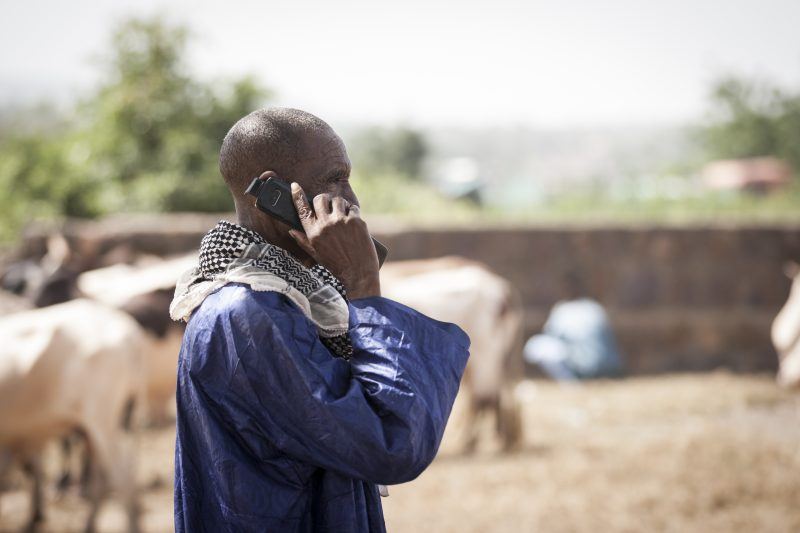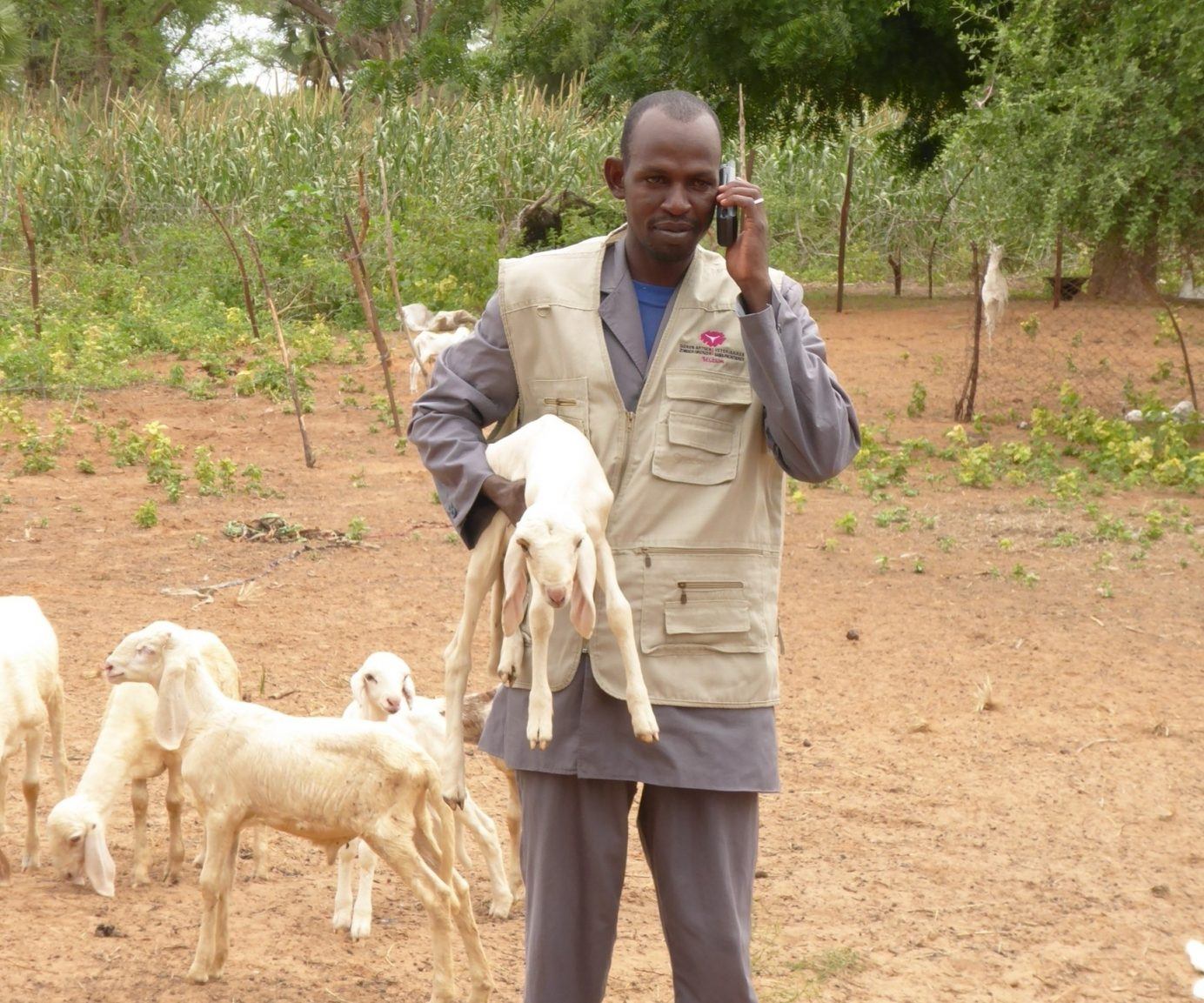In 2015 Africa reached the point where the continent in terms of number of mobile phones (650 million) overtook Europe and the United States. And this year the continent has exceeded the milestone of one billion. Only Asia counts more mobile phones.
Mainly the urban population owns a mobile phone, but also on the countryside this method of communication gains popularity. In the Sahel for example, one out two livestock keepers has a mobile phone. Those devices are not only used to communicate with family or to receive religious messages, furthermore they play a significant role in contributing to rural livelihoods. Livestock keepers inform themselves about the prices of feed or ask information about epidemics. This knowledge helps them deciding which direction to go.
But the use of a mobile phone has its limitations: how do you know that the person on other side of the phone passes by reliable information? And how does this news gets widespread? To solve this problem Vétérinaires Sans Frontières Belgium tests and develops a mobile information system for livestock keepers in Niger and Burkina Faso. With the help of their phones pastoralists can get the answers on questions like “Where can I find a vet?” Or “Are there wildfires in this area?”
For information about water points, press 2
The system is fuelled by information directly from people working in the field, like livestock keepers, vets and community animal health workers. Abdousalahm Moussa is one of the animal health workers who already followed a formation about the technology. He shows us – proud – the smartphone he received. The app developed to share information is very user friendly. Some questions are easy to answer (when did it rain for the last time), while other questions are more complex ( are there unsafe areas, with banditry or cattle rustling?).
 “After ten days I will refill the questionnaire, so the information remains up-to-date. I can guarantee you that I have answered the questions truthfully”, laughs Moussa. “But to make sure that the right information reach the farmers, the system is monitored by local veterinary authorities and the police. They receive the information by e-mail and after a check they will send the data to national leaders who verify the information as well.”
“After ten days I will refill the questionnaire, so the information remains up-to-date. I can guarantee you that I have answered the questions truthfully”, laughs Moussa. “But to make sure that the right information reach the farmers, the system is monitored by local veterinary authorities and the police. They receive the information by e-mail and after a check they will send the data to national leaders who verify the information as well.”
Afterwards the local radio stations will distribute the information. “But no worries, livestock keepers who missed the broadcasting or have specific questions, can call a central line”, explains Moussa. For example: “For information about grasslands, press 1, water points, press 2″, a voice will announce.
Confidence
This new technology is one part of a large-scale project in five countries in the Sahel (Niger, Burkina Faso, Mali, Senegal and Mauritania). Building resilience and adaptation to climate extremes and disasters is the main goal. Therefore Vétérinaires Sans Frontières Belgium contributes by developing an innovative communication strategy to support the mobility of nomadic pastoralists. Furthermore, we strengthen the animal health and we install fodder banks. An important intervention, because stocks guarantee enough food for the animals, even during dry season. And well-fed animals give more milk and have lower changes to die.
“This approach is successful”, confirms the local partner. “Nine feed banks are already operational and our vaccination campaigns are running well.”
“Although it’s not always easy”, admits a Nigerian vet. “Some livestock keepers are sceptical about the use of medicaments and antibiotics. So over and over again, we emphasize the importance of vaccinations to prevent diseases. And after a while we notice a change of mentality. But at the same time we have to admit that some diseases are impossible to overcome with a vaccination.”
It’s difficult for a vet when an animal dies, despite animal health care. At that point, the relation of confidence is broken and must be rebuilt. “Fortunately those cases are rare in Niger. And the more vets and information available due to Vétérinaires Sans Frontières Belgium, the faster a disease will be recognised and can be cured.”

